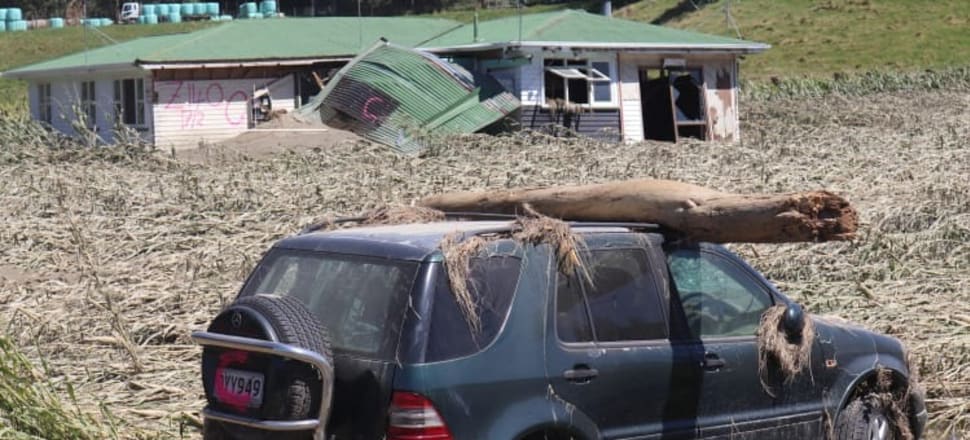
Shareholders opted to liquidate instead of paying for costly restitution
Rural investment firm MyFarm is liquidating an Esk Valley orchard fund whose assets were severely damaged in Cyclone Gabrielle.
MyFarm raised over $3 million from wholesale investors to purchase the 28 hectares to develop into an apple orchard in 2017.
It was the company’s first foray into apple orchards, owning significant livestock, vineyard and kiwifruit orchards at the time.
READ MORE: * The long tail of Cyclone Gabrielle: the mountains that roared * Small winemakers banding together for cyclone relief * Bulk of Hawkes Bay fruit growers’ crops uninsured
Liquidators from BDO were appointed to the General Partner (essentially the investment manager) on September 6.
The limited partnership (made up of the shareholders who own the properties) is yet to be liquidated but it is in the works.
The first liquidator's report on the general partnership said the 28 hectares of land were severely affected by floodwaters and silt after the Esk River burst its banks during Cyclone Gabrielle in February.
The properties have been unusable for apple growing, and the limited partnership has been unable to trade for more than six months since.
The liquidator's report said after assessing costs and options for rehabilitating the sites and considering the mortgage it holds, the limited partners decided not to proceed with rehabilitation, opting for liquidation instead.
MyFarm chief executive Andrew Watters didn't want to say much at this stage but told Newsroom the Esk Valley was absolutely devastated by the cyclone.
“If your property is covered in a couple of metres of silt, the options are limited.”
Trees drowned in silt can easily die if not dealt with quickly enough.
“It's just totally devastating and really hard to see any practical way out of those circumstances, and that'll apply to many businesses.”
Damage to agriculture in Hawkes Bay was widespread and immense.
The estimated cost of the event in Hawkes Bay is over $5 billion, and, according to the regional council’s Regional Water Assessment, costs to the primary industries could be as high as $1.7b.
Other costs from the paper, released in June, included local government infrastructure costs of $1.5b.
Hawkes Bay is one of New Zealand’s most important fruit-producing regions, with 6186 hectares of apple orchards out of a total 9789 hectares in New Zealand.
To make matters worse, many growers in the region were without forms of insurance.
Even large NZX-listed apple grower Scales Corporation, with 1100 hectares of apple orchards in Hawkes Bay, didn’t have insurance to cover damage to crops from flooding.
However, the region has made some steps forward, and last week the Napier and Hastings councils formally agreed to a split cost buyout plan for Category 3 damaged homes as part of a cyclone package from Central Government.
There are more than 300 eligible homes in Hastings and just 20 in Napier. Buyouts could start as soon as October.
The Government’s $500m package also includes $260m for road and bridge repair and $203.5m for flood protection measures.







